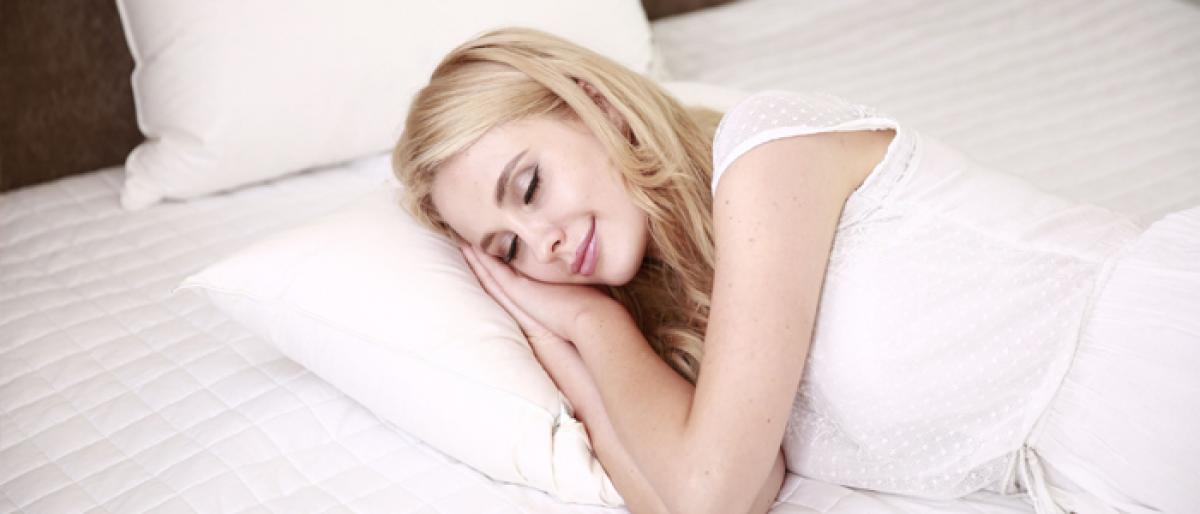For that tranquil sleep

Environmental factors such as atmospheric pressure, precipitation, temperature and humidity have a deep impact on our slumber Consequently, when the weather changes, it impacts our quality of sleep In fact, it can disrupt our sleeping patterns and cause irritability, mood swings and even physical pain
Environmental factors such as atmospheric pressure, precipitation, temperature and humidity have a deep impact on our slumber. Consequently, when the weather changes, it impacts our quality of sleep. In fact, it can disrupt our sleeping patterns and cause irritability, mood swings and even physical pain.
To ensure an uninterrupted and restful sleep through every season, it is necessary to know how different weather conditions affect the body. Further, it is also important to make appropriate changes in your sleeping habits in order to remain unperturbed by the weather.
More cold equals more sleep
During the transition from summer to winter, daylight hours are gradually reduced. Due to these decreased hours of sunlight, we absorb lesser amounts of Vitamin D every day. Reduced Vitamin D levels are connected to several ailments like daytime drowsiness and fatigue.
Changes in the day and night cycles also impact the production of melatonin, which is the body’s sleep-inducing hormone. When the body produces fewer amounts of melatonin, issues like interrupted sleep and insomnia may occur.
To avoid such consequences, it is best to expose yourself to sunlight for at least 30 minutes every day. This way, your body can absorb enough Vitamin D and stay active and productive throughout the day. For every season can we have solutions highlighted as:
Some tips to sleep better in winter:
- Take a bath with lukewarm water
- Extra layers of quilt or warm comforter for a sound sleep
- Expose yourself to sunlight and our body releases the happy hormone serotonin As winter sets in, the cooler, drier air has a more positive impact on the sleep cycle. When your body prepares itself for sleep, your internal temperature drops slightly and stays low until you wake up. Cooler temperatures, therefore, support the body’s natural sleep process leading to a more restful, deep sleep. So, when you sleep in a cool bed, you fall asleep faster and stay asleep for longer. This is also the reason why it is tough to get out of bed during the winters.
Losing sleep during allergy season:
Spring and monsoon seasons are harbingers of seasonal allergies. Symptoms such as sneezing, wheezing, watery eyes and runny noses are rampant during this season. People who are susceptible to allergies can have long, gruelling periods of interrupted slumber.
Apart from allergies, seasonal bouts of cold and flu can also flare up sleep disturbances. While elevated body temperatures and restlessness already impact sleep, alcohol-based medicines make matters worse.
A humidifier is a helpful addition to your bedroom to keep allergic reactions at bay. Immunity boosting eucalyptus oil can be added to bath water to further shield you against allergies.
Stormy weather and sleep deprivation:
Not surprisingly, storms accompanied by loud claps of thunder and bright flashes of lightning can also interrupt your sleep. According to research, conditions such as asthma and sleep apnea also worsen during storms, as the atmospheric pressure lowers. Little can be done about storm-related sleeplessness but white-noise machines and eye masks might be able to help.
Some tips:
- Do yoga and deep breathing exercises
- Drink soothing chamomile tea
- Listen to soft music
- Bedding Comfortable
- Evidently, every season brings a different sleeping situation and the body has a hard time adjusting to the changes. While you cannot control the temperature or weather conditions outside, controllable factors such as weather appropriate clothing, comfortable bedding and mattresses, and relaxing bedtime routines can help the body adapt to weather changes and achieve tranquil periods of continuous sleep.
- Ankit Garg, CEO and Co-founder, Wakefit.co.
















